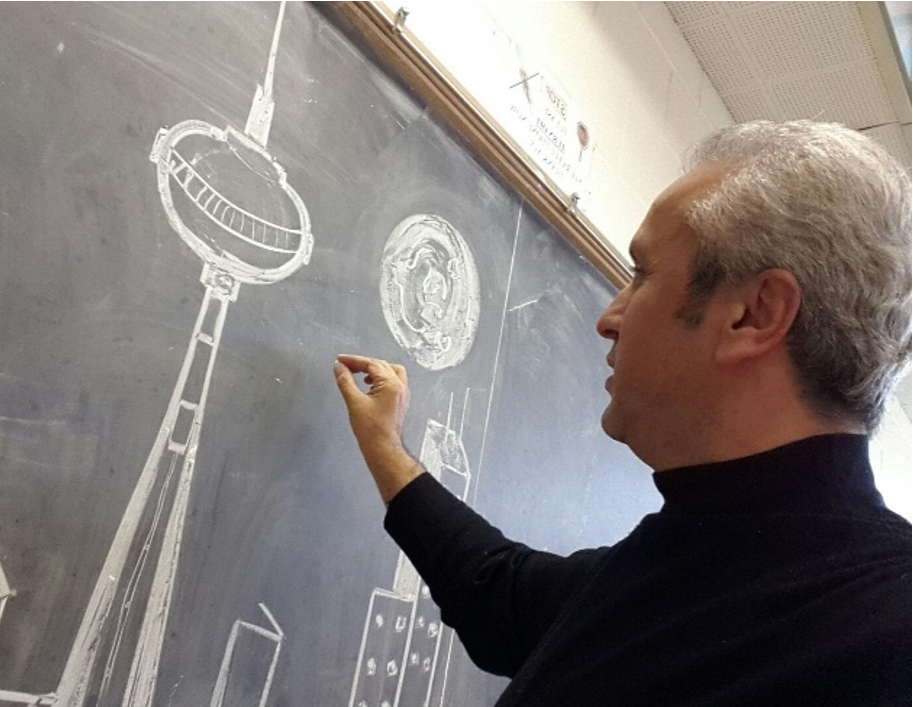Uncategorized
Responding to the Seniors’ Education Market
Schools, colleges and universities have responded in part to declining enrolment by marketing to international students and newcomers who are internationally trained, but they have yet to see marketing to seniors as, if not a potential gold mine, at least as a source of revenue. The TDSB has just decided to sell off underused schools instead of expanding learning programs for seniors.
There are several reasons why the Board is ignoring the lucrative seniors’ market.
First of all, seniors are used to receiving a discount on fees. Giving discounts is not as financially pleasant as charging international students a hefty fee for educating them. However, a reduced fee could still bring in enough money to keep some schools open. Given that the boomers are aging, what they don’t pay in fees will be made up in their numbers.
Secondly, seniors are interested in learning for the sake of learning, not in taking courses to get a credit towards a degree, a diploma or a certificate in order to get a job or to get a better job. For the most part, our educational programs are not organized for learning for its own sake, for example, through discussion. Rather they are organized for students to earn credits through tests, presentations, exams etc. Understandably, public policy directs tax money to support educational programs so the young can get a job and the economy has skilled, knowledgeable workers. On the other hand, seniors need and want entirely different programs. For example they are concerned about health, (keeping an active mind helps ward off mental decline).
Thirdly, educational institutions are organized to deliver a pre-determined curriculum, whereas adult education is about developing programs to answer the needs and wishes of learners in a particular community. It is bottom-up curriculum development not a top down delivery. And this approach goes “against the grain” for educational institutions. But surely our educational institutions could learn to deliver the curriculum in a different way.
Canada does not have a learning for learning’s sake culture nor, despite the talk, a commitment to lifelong learning as many other countries have. Finland, for instance, sees lifelong learning as a citizenship issue: the more knowledgeable the citizens the better the public policy. And the government is willing to invest in this type of learning. Such a commitment does not seem to be the case in Canada. Offering learning for its own sake to seniors would be a step in the right direction.
The Ontario government will save some money on education because of its recent streamlining of post secondary credit granting (see March 2011 Learning Curves) and the limiting of high school credit courses.
If seniors paid a reduced fee, the government could take some of its savings and provide the rest of the financial support needed for seniors’ programs for health and citizenship reasons rather than economic ones.
In the past, educational organizations have restructured to respond to changes in their markets. When the baby boom generation as adults wanted to go parttime to get a degree, Continuing Education Departments grew rapidly. Lately, the need has been for accelerated degree programs for the internationally trained and a demand for MBA programs. Adult Day Schools in the school boards were set up in response to a need for higher literacy levels in today’s work force. In a globalized world the demand from international students for a North American degree has been met with enthusiasm by our educational institutions. Without this financial incentive, what will motivate educational institutions to respond to the aging baby boomer educational market?
Programs targeted to seniors like Ryerson’s Life Institute are filled up hours after registration opens leaving many would-be senior learners excluded. (See side bar for contact numbers for many of these programs.)
Currently, public policy focuses on dealing with the problems of seniors such as home care, end of life care, nursing homes, etc. We also need public policy that focuses on seniors’ abilities, so they can stay able longer.
Expanding existing learning programs for seniors and developing new ones should be an institutional and government priority.
We urge seniors to get on the phone and talk to their MPP, school trustee, city councillor and educational institution. After all you pay taxes that go to these educational institutions. Schools, you should listen. If you serve seniors who, by the way are likely to vote, they will support education. Institutions, pay attention. Many of these seniors could become donors or leave a bequest. Those working with seniors, pepper the government with proof that an active mind is a healthy one. It is accepted that investing in children’s education will save money for the justice and social service budget big time. In the same way, we need to accept that investing in seniors’ learning will save money for the health care budget.
LEARNING OPTIONS FOR SENIORS
Toronto District School Board
Many seniors take the TDSB General Interest Courses:
There are also special day time programs for seniors.
Seniors who are 60 years old and over pay half price.
Colleges
Many colleges allow you to audit a course – that is,
to participate in a class without having to complete
assignments. In choosing to audit a course, you also
forfeit the right to a grade or a credit.
Auditing a course is a good option for seniors.
George Brown
Seniors 65 years and older are entitled to a discount of 20%
on tuition for all Continuing Education courses,
including Distance Education. You may audit a course
with no requirement to complete assignments or take the
final exam with the understanding that you formally
waive the credit value of the course. Full course fees apply.
For information on courses, events, and activities, contact:
Seniors’ Association of George Brown College:
416 425-5000 x 2416.
Seneca College
Auditing a course is not listed as an option in the calendar.
Centennial College
Auditing permitted. No course credit.
Full fees apply.
Humber College
To audit a course, written permission from the appropriate
Associate Dean must be presented at the Registration Centre.
No course credit. Full fees apply.
Sheridan College
Auditing a course is not listed as an option in the calendar.
Durham College
Auditing permitted. No course credit.
Full fees apply.
Universities
Ryerson University
The Life Institute www.thelifeinstitute.ca 416-979-5000 Ext 6989 This is a collaborative program run by
The Life Institute and The Chang School for Continuing Education. University of Toronto Academy for Lifelong Learning
www.alto.ca 416-946-5185
This program is run in partnership with the School of Continuing Studies. Both of these university programs are member-based, voluntary associations and belong to the Third Age Learning Network: www.thirdagenetwork.ca
Here are some other lifelong learning groups that belong to the Third Age Learning Group. Unfortunately, many of these programs are oversubscribed.
- Later Life Learning lll.innis@utoronto.ca 416-978-4921
- Living and Learning in Retirement http://llir.ca
- In partnership with Glendon College, York University Learning Unlimited www.learningunlimitedetobicoke.ca 416-410-6204 Fairfield Seniors Centre.




